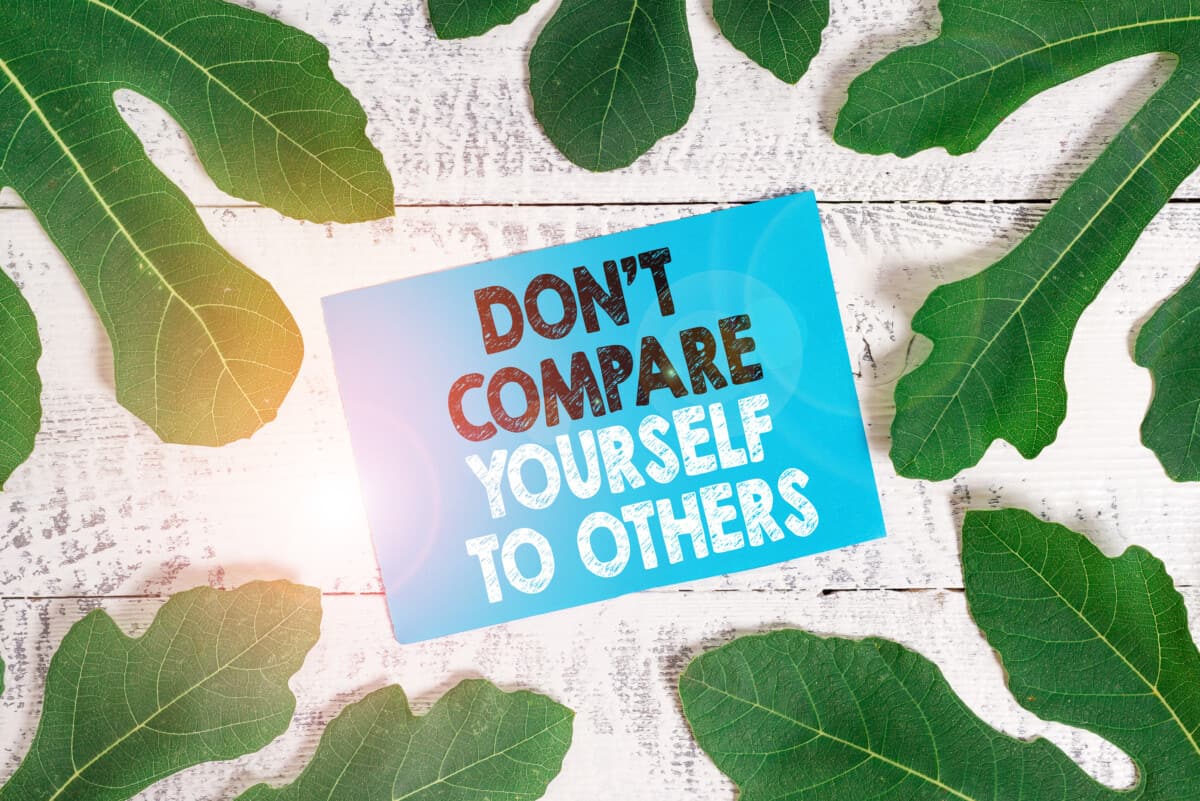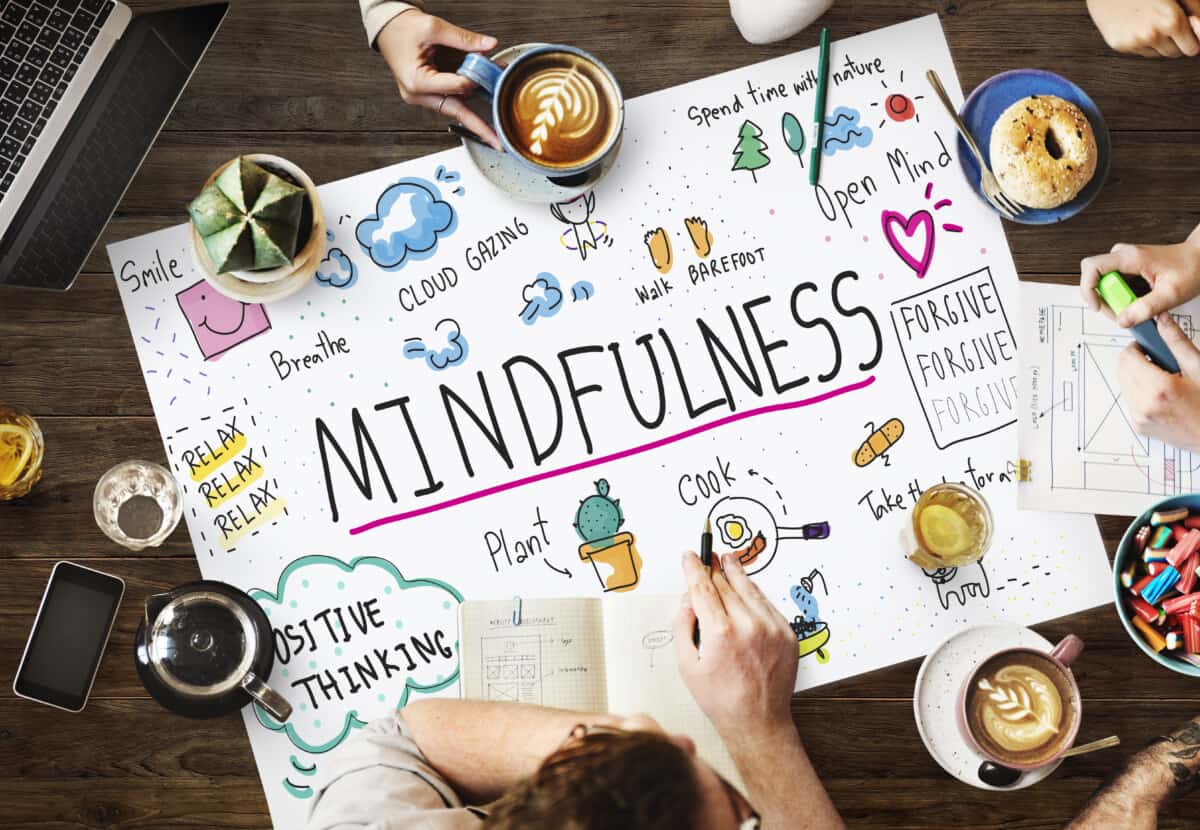We live in a pretty complicated time right now. With the world facing so much negativity, finding the bright side to life seems pretty impossible when everything appears fairly gloomy.
Despite the many inspirational resources out there advising us to connect more with the things there are to enjoy in life, we simply cannot bring ourselves to break free from our self-inflicted repertoire of balancing job stress, our relationships, and the many milestones we set for ourselves.
We seemed to have reached an impasse, don’t you agree? And you may be wondering: how is it possible to appreciate life more?
The answer may be simpler than you think. It starts with how you reflect and react to your daily experiences. The irony is that you’re doing this every day, but your views may be clouded by feelings that make it easy to miss the silver lining.
However, you can hardly be blamed. Life is fast-paced, and it drags us along at its leisure. There doesn’t really seem to be time to reflect too long on the circumstances that present itself to us.
Or is there? Have you considered that it is maybe one of the many little things we tell ourselves in order to just get on with the day? Maybe you’ve grown so accustomed to your own brew of bad feelings that you never realized there was a recipe to enjoy life more.
Think you’re ready to try a new elixir on life? Then read on.
The Formula of How to Appreciate Life More

How We Think
“Between stimulus and response, there is a space. In that space is our power to choose our response.”
— Viktor Frankl
Think about this quote for a moment.
In fact, really marinate in the wisdom it imparts.
We reach a stuck point in our lives, all of us, at the very moment we surrender to the notion that every action simply has a reaction. Ask yourself, if life was to throw me off in some way, would I simply tilt over?
Perhaps you feel there is not much to be done to prevent it. Quite the contrary though; in the few seconds that separates your reaction from the thing that happened to you, you have the capacity to influence the course of judgments to feel very different about things when you do finally react.
But not everything happens in the microcosm of single events. You don’t face challenges all the time. Bad things don’t always happen. Still, you don’t wake every day with a specially curated sunny disposition at your disposal either. You still find it in yourself to be moody.
The tragic things about this is that negative emotions blot out your capacity to immerse yourself in the moments promising joy. To counter this, you try to engage in self-reflection, but the way you introspect has its own consequences when your thinking takes you in the wrong direction.
Why do you find it so difficult to engage with, and appreciate, the present moment? Perhaps this video can offer an answer.
One thing becomes evident: you need to change your perceptions.
What Keeps Us From Appreciating Life?
The way you think is inextricably linked to how you react to your surroundings. Knowing yourself better than anyone, you also know it is often those things outside of yourself that upset your balance.
What’s more, you sometimes create these conditions yourself. Are you perhaps doing any of the following?
- Cluttering your life with things you don’t use
- Upsizing instead of simplifying
- Holding on to negative emotions and grudges, instead of moving on
- Using excuses to keep yourself from meaningful connections
- Ruminating on the past, or obsessing over the present
- Constantly wishing for more
This by no means exhausts the list of things that may possibly hinder you from seeing more value in your experiences. In fact, there may be a number of other things that cause you stress, melancholy, or frustration.
Your Position Toward Life
Your reflection on circumstance and your choice of response both have a significant impact on your evaluation of your life. In fact, psychologists have a label for this—one that you are not at all unfamiliar with. It’s called an attitude.
At its core, attitudes are our value orientations about the world. They are shaped by our thinking and displayed through our behavior. It is the thing that makes your stance toward something clear, whether it be a person, place, or a situation.
Attitudes are the intersection of your evaluative beliefs and feelings, predisposing you to either viewing something favorably or in a bad light.
The psychologist, Gordon Allport, adds to our understanding by calling it a state of readiness. These beliefs and feelings are determined by our experiences, and ultimately, they direct our reaction to our surroundings in dynamic ways.
In other words, your attitudes are a significant part of how you position yourself in life. More importantly, they are a key ingredient to your identity. Your values, formed individually or foreclosed from upbringing, also play a role here.
Another key ingredient is your motivations. Those things that make you do something with intent. Thus, your attitude is a manifestation of your personality, which, in turn, houses the things that interest you and the things you come to appreciate.
Attitudes are meant to be helpful. They help us to navigate many thorny issues by acting as a reference point. However, you may already notice how things can go wrong here.
If your goal is to show more appreciation in your life, then an attitude that allows you to devalue and constantly see things in an unfavorable light may be a barrier in your life instead of a roadmap.
The Secret Recipe
Barriers can, however, be removed. Earlier, it was mentioned that you have the power to alter your perception in those mere seconds that separate a stimulus from your reaction to it. That was no lie. To support that, you may find the following formula useful:
- Stop making comparisons that don’t inspire or make you grateful
- Be more mindful of the present and surrender control of things external to yourself
- Savor your experiences and enjoy the simpler things of life
Let’s take a closer look at the ingredients that will allow you to value life more.
Keeping Company With Comparisons

We are social beings. As such, our experiences are not isolated, but rather intertwined with those of others. We prefer this in fact, as our brains are hardwired for social connection.
That also means we get a good look at the lives of other people, realizing that their fortunes are either very similar or vastly different from our own. It’s unavoidable really. The more meaningful the connection to someone, the more you are exposed to the shape of their lives.
When this happens, your mind starts keeping company with an altogether different strain of thoughts that we call comparisons. With these, you view two lives side by side, noting the benefits of one while also noticing the shortcoming of another.
Psychologists believe that this is a fairly normal strategy, one they call social comparison.
Social Comparison Theory
Social comparison refers to those behaviors by which we measure our status or success to that of someone else. Later, definitions of this expanded to include situations where people also compare their opinions, their abilities, and even their emotions.
Basically, you may see social comparison as an assessment of sorts that helps you gain more information about yourself. It is just a means of self-insight that happens to be achieved by seeing your lives relative to someone else’s.
It is suggested that these comparisons occur on the basis of three motivations:
- Self-evaluation
- Self-improvement
- Self-enhancement
Thus, you compare to make a judgement of yourself in order to set milestones by which you can become better in some way.
What are the outcomes of these comparisons?
Well, if you find that your value can be equated to someone whom you admire, then you may feel emboldened by the aspects that formed the basis of these comparisons.
For example, if your solution to a problem agrees with that of another person who is considered to be an expert, you would feel pretty confident in your abilities.
If your evaluation brings you to the conclusion that you fall short in some way—perhaps you missed some variables while forming your solution to the problem—you might do one of two things.
On the one hand, you may choose the route of improving your opinion on the matter to better equate with the person you deem the expert. On the other hand, you may choose to exert influence on the other person to agree with you on the matter.
You can be in either position, whether it be the expert or the novice. In fact, your positioning on these aspects of comparison determine another important factor: the direction of comparison.
Upward and Downward Social Comparison
When we make upward social comparisons, we use people as a benchmark whom we consider to be better than us in some dimension. In contrast, a downward social comparison is made with people whom we perceive to be in a worse position than us in some way.
The consequences of the value judgements are not wholly determined by its direction. Either an upward or downward comparison can leave you with either a positive or negative evaluation of yourself. What do you make of the following?
| Dimension of Comparison | Upward Comparison | Downward Comparison |
| Appearance | He has a great physique since he started training. I should start my fitness journey as well. | At least I didn’t let myself go as much as he did during the holidays. |
| Intelligence | She makes studying look effortless. I have to work twice as hard to learn as much. | I am lucky that I don’t have difficulty understanding the new syllabus like some people. Perhaps I can help them. |
| Success | I wish I could achieve my monthly goals as quickly as my colleague. | Even though the company isn’t doing well, they are less likely to let me go because of my more senior position. |
| Wealth | If only my life could be as carefree as hers. She throws money around and never worries about debt. | I make enough to get by. I feel fortunate not to make ends meet like she does every month. |
| Relationships | I wish our dynamic as a couple was as exciting as theirs. | Luckily, we don’t fight with one another as much as they do. |
As you can see, our comparisons can leave us with a number of responses in both cases.
The Trade-off With Comparisons
By now you may realize how comparisons serve a purpose. Comparing upward, we may be inspired by the achievements of someone else and make the choice to improve ourselves.
Alternatively, making a comparison downward, you may see yourself in the ideal position to offer your help to someone.
There is a nasty trade-off we don’t always consider though. It happens when these comparisons leave us dissatisfied (because you don’t have what someone else does) or complacent (because you are still better off than someone, and thus need not change your situation—even when it is bad).
Take a moment to listen to the story of wheelchair athlete, Dean Furness, who learned that comparisons can make you lose sight of setting “personal averages” and overcoming your challenges:
What you may have noticed in addition, is how comparisons remove us from the present moment, or otherwise, makes us focus on a singular aspect thereof.
In some cases, it may be a better idea to stop comparisons and perhaps open yourself to a more positive appraisal of the moment that is given to you.
The Magic of Mindfulness

Living in the Moment: What is Mindfulness?
People are recalibrating their lives more and more towards being fully present within the moment, noticing its benefits in an era where so much of our circumstances are geared to distract us from it.
Mindfulness is the practice of focused awareness on the moment as it presents itself. In this way, you become more receptive to the events you encounter and the thoughts and feelings they evoke within you.
Mindfulness teaches you to accept these moments without judgment. When you do this, you become more objective in the way you label your thoughts and feelings. In the same way, you may find you become less self-critical and more appreciative of their timing.
When you’re confronted with a situation in which you may perceive yourself to fall short when compared to someone else, a mindful mindset might help you avoid a sense of despondency and instead see a moment in which something could be learned.
The interesting thing about comparisons is that we don’t always make them socially. We also compare the present moment to the past.
It may reveal a change in fortune that does not sit well with you. Maybe you felt you were better off years ago than you are now. It makes you wish you could change your circumstances.
Mindfulness has a more ancient foundation that may help with this. It was a philosophy the ancient Greeks labelled stoicism.
The Caveat of Control: A Lesson From the Stoics
The teachings of the Stoics held that happiness could be found in an acceptance of the moment. Along with this, a person should not allow their fears or desires to control them but instead use logic to overcome their challenges.
Perhaps one of its more famous tenets, the dichotomy of control, comes from the philosopher Epictetus. He said that our task is to separate the things that are within our control from the things that are not.
There are things we may label as externals, such as people and their opinions, or the very situations we often find ourselves in. They are seen to be outside of our control.
Internal factors, such as our beliefs and emotions, lie within our control. This is because we have the power to change them.
We spoke of this power earlier, lying within that moment where something happens to you and before you react. It is this moment that you have control over, where your feelings and thoughts arise in response to our circumstances.
Stoicism, like mindfulness, teaches you to pay attention to these moments. If you do, you are taking one step closer to happiness. Saying that, don’t you think we would be able to appreciate life more if we are happy?
The Mindfulness Playbook
Mindfulness doesn’t come naturally to most. The truth is, you may feel too disillusioned by your past or too preoccupied with the future to really focus on the present.
However, that does not preclude you from turning it into habit. In order to do that, you are challenged to make it a practice that you engage with attentively. Here is how you can accomplish that:
- Find a space and set aside some time.
- Observe the moment as is.
- Seek not to quiet the mind, but rather to pay attention.
- Untether yourself from judgement.
- Keep the mind from wandering.
- Return to the present moment.
- Be gentle in the practice.
It may seem deceptively simple, but we often get distracted. You’ll get sidetracked by your evaluation of the situation or by the comparisons you automatically make. Your responses will further misdirect your attention.
The purpose of mindfulness is rather to return to the present again and again, even when the mind wanders. In this way, you become more receptive to the moment as it is, while possibly surprising yourself in the good you may come to see.
Do you know what to do with this good when you find it?
Cultivating appreciation is easy. You simply need to open yourself to deriving pleasure from even the simplest of moments.
The Secrets of Savoring Experience

Have you ever sat down to a meal so perfect that the very experience is seared into your memory? Somehow the ambience was just right to be stolen away by the taste, where hints of sweet and salty flavors danced harmoniously on your palate.
The experience was unforgettable, and try as you might, you simply never did manage to recreate that feeling of pure bliss and contentment.
Perhaps it may surprise you that not all of it was attributed to the meal itself—not that the talent of the chef can be brought to question. It may have had more to do with the much more complex interplay of factors that allowed you to savor the experience.
The Upward Spiral of Positive Emotions
Since the turn of the century, a rising tenet within psychology has been the focus given to the impact of positive emotions, as the well-being of people didn’t just hinge off fixing what felt broken.
Where negative emotions were found to narrow our attention, positive emotions were seen as doorways by which to broaden our focus, making us more attentive to our thoughts and subsequent actions.
The result: we become more resilient. Positive emotions help us to really take stock of our surroundings, including the resources available to us to solve the problems we may be facing.
It contributes to an upward spiral, where we then begin to notice other emotions we may have clung to, effectively allowing us to unblock ourselves in the same way.
In a way, it seems that positive emotions actually enable us to be more mindful. Focusing on these feelings are thus beneficial to opening our minds to the moment.
Good feelings such as these also need not be short lived. What if you could mindfully extend the shelf life of your happiness?
To Savor Throughout Life
The duration and intensity of positive experiences can be increased through what is known as savoring. In essence, it is an active and deliberate effort to prolong the good feelings you attach to these experiences.
This can be done through the very mindful practice you have read about, where the concentrated effort is directed toward the shape of thoughts, feelings, and actions.
Fred Bryant suggested that savoring can occur in one of three ways:
- The anticipation of a positive event that makes one feel excited
- Being in the moment, where positive feelings are intensified
- Reminiscence, and the revival of positive experiences in memory
You may even see this in a cycle. Mindfulness strengthens positivity, which then creates more experiences to be cherished and remembered. Knowing that such experiences can await you will make you look forward to them more.
There are also ways in which savoring can be facilitated according to researchers Quoidbach, Berry, Hansenne, and Mikolajczak. These include:
- Expressing savoring behaviors, e.g., vocalizing your enjoyment of a meal
- Mindfully focusing on the moment
- Capitalizing, where savoring becomes a social and celebratory event
- Positive mental time travel; i.e., reflecting on great experiences or looking forward to exciting events
With such investment in getting the best from your positive emotional experiences, it is no wonder that theorists like Barbara Frederickson have considered the contribution of these feelings to human flourishing.
In short, flourishing denotes positive well-being. It almost makes sense to think that a state like that would help in being more appreciative and even content.
Some cultures have even capitalized on this experience by making it a pursuit of daily happiness.
The Danish Way of Happy Living
Denmark has repeatedly been regarded as one the happiest places in the world. You may wonder what it takes for a country to achieve such a status, expecting that it is perhaps one of the many perks of a developed country. In truth, it all starts with their orientation to life.
The Danish are firm adherents to the principles of hygge (pronounced HOO-gah). Meik Wiking, author of The Little Book of Hygge: Danish Secrets to Happy Living, describes it as a mood that can be likened to a “coziness of the soul.”
At its core, hygge encompasses a conviviality in your surroundings, which results in feelings of contentment, appreciation, and happiness. It is a state that is not meant to be difficult to achieve. Quite the contrary, the ease of hygge can be attributed to a focus on the simpler things of life.
Hygge involves a simple recalibration by making the good things a part of your everyday experience. These are things that bring you comfort, contribute to a sense of togetherness, and offer a sense of indulgence.
Hence, a big part of adopting a hygge manifesto is being present in the moment, which will allow you to enjoy the simple pleasures life has to offer. These may range from any hobbies that bring you relaxation to spending quality time with the people you love.
It is also not an expensive pastime.
Taking all this into consideration, you may ask yourself why you haven’t been practicing it yourself. Hygge is perhaps a new idea to many of us, but perhaps it is simply because we are so very removed from an appreciation of the quintessential ingredients to joy.
Think you can buy into a feeling that sounds like “cocoa by candlelight”? Why not learn from someone who is a hygge-spreader?
Revelations and Related Questions
What tools can help me to be more mindful?
Meditation is a good entry point by which to become more present, but not all of us are used to the practice. You can learn the basics and benefits thereof by trying an app like Headspace or Calm to deepen your mindful habits to live happier.
Is appreciating life the same as being grateful for it?
Though gratitude is an excellent way to nurture more appreciation in your life, appreciation is more spontaneous. Being grateful means being more conscious of what you already have and making a decision to find satisfaction and contentment therein.
Having Taken a Step Back
There’s a saying that one should always try to take two steps forward in life, while taking one step back. Sure, the journey may be longer. But at least we get to experience more of the world.
That has never been more true for the times we live in. The endless chase of happiness has driven us to pursue things that simply cannot give us what we need.
Perhaps you have found yourself jumping onto someone else’s hedonic treadmill, seeking the same thing and hoping to feel the same way by virtue of the comparisons you draw.
The striving for success, status, appeal, and the connections we seek make us run harder and faster. The result is that we miss the things that are right in front of us with every passing moment.
Moving forward is inevitable. There is no disputing that. It is in choosing how to move that makes all the difference.
Appreciation is a state of mind. How we find it is connected to how we contemplate on the things we experience and the response we choose to give. That response is firmly within our power.
It simply takes a commitment from our side to be more mindful of the experiences that we encounter, the feelings they awaken, and the way we weave perceptions around them by the reference of our beliefs.
It requires that we focus and invest on up-regulating our positive feelings, which broadens our minds, helps us objectively take stock of our circumstances, and find enjoyment in the smaller things.
There are many instances that can leave you more appreciative. You simply need to open yourself to finding them. After all, you cannot call a day beautiful unless you look up to find the sun hanging in the sky…
